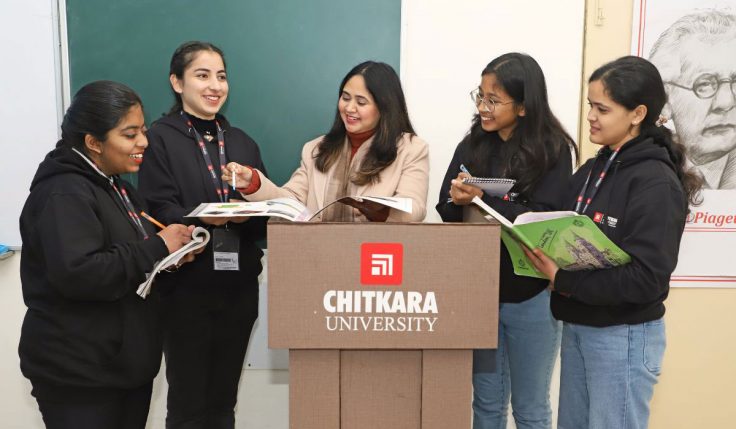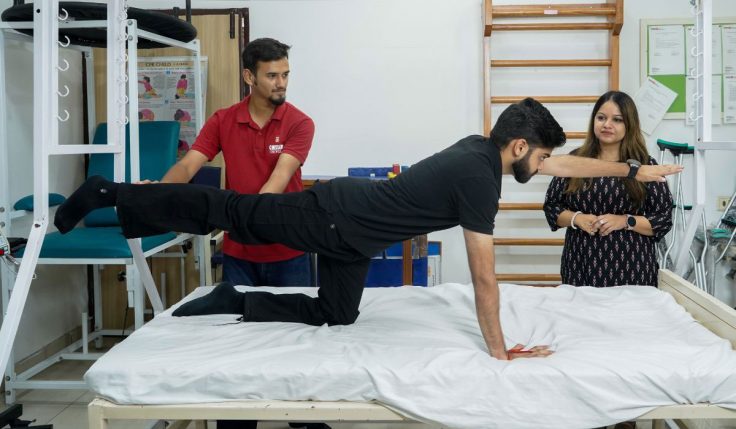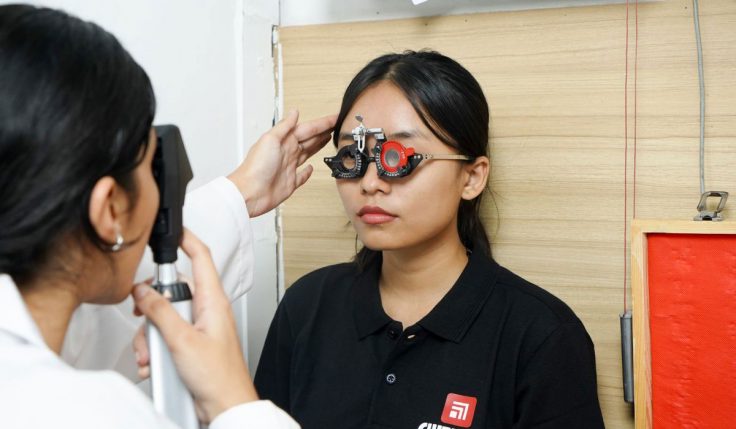Optometry is a specialized healthcare profession that involves the examination of eyes for defects of vision, diagnosis, and treatment. The professionals in optometry called optometrists provide comprehensive primary eye care. India has a huge vision deficit with over 300 million people deprived of vision correction and thus to solve this gap India needs ~1,00,000 optometrists to the rescue. M. Optometry (Master of Optometry) is a 2-year postgraduate course that includes the study of detecting and treating common eye diseases. It also involves the management of binocular vision problems such as improper functioning of the eyes. If you aim to pursue a career in optometry and want to know about its details like syllabus, eligibility criteria and future scope then read this article till the end.
What is M. Optometry and why should you study it?
M. Optometry is a course for optometry graduates to enhance their knowledge in vision science, clinical diagnosis, and optometric management practices. M. Optometry trains students for professional specialization in various areas of optometry such as contact lenses, pediatric optometry, low vision, etc.
One should study optometry because it is one of the most in-demand professions in India currently. With an increasingly aged population, the use of digital devices like mobile phones and laptops, and growing incidences of macular degeneration and diabetic retinopathy- optometrists are an integral part of primary eye care.
Eligibility
Candidates willing to apply for this course should have a Bachelor’s degree in Optometry with a minimum of 55% aggregate from a recognized university from Union Grant Commission. Different universities may have different entrance exams for the course. Students must pass these entrance exams which are then followed by viva and a personal interview.
M. Optometry Syllabus
The syllabus for M. Optometry includes the following major topics to study for the duration of two years.
- Community Optometry and Public Health
- Orthoptics and Vision Therapy
- Advanced contact lens studies
- Advance Dispensing Optics
- Research Methodology
- Neuro Optometry
- Business and Clinical aspects in optometry
- Pediatric Optometry
- Basic Sciences and Clinical Optometry
- Clinical Imaging
Fees and highlights for M. Optometry
The average fee for M. Optometry in any recognized college in India is in the range of 50,000/- to 1,10,000 per year.
Optometrists do much more than supply spectacles and contact lenses. They screen for signs of diseases that may require medical attention. At Chitkara, students get to learn the most in-demand and contemporary skills through extensive industry exposure and various sessions with experts. Design and development in the Optometry industry requires a perfect blend of theory, practice and research and is best learnt by practicing. The best part about studying M. Optometry at Chitkara is that students get to study an application based course rather than just books and theoretical knowledge. With clinical training they get to spend a lot of time practicing their acquired skills.
Career options after M. Optometry
Optometrists usually work in eye hospitals, clinics, and opticians outlets or with vision care companies. Following are the job profiles for which students can apply after finishing M. Optometry
- Vision Therapist
- Behavioural Optometry Specialist
- Neuro-optometric rehabilitation professional
- Low vision and contact lens specialist
- Researcher
There are different companies and healthcare centers that recruit optometrists. Some of these are Lenskart, Titan Eyeplus, Deloitte, Fortis, Medanta, Wockhardt, Zydus, etc.
After gaining experience in a private establishment, one can open own practice. Flexibility in practice and the myriad of choices are some of the many benefits of optometry.
As the need for optometrists in India is increasing, so is the need for teaching professionals in this field. Students can pursue higher education in optometry and later join as faculties in universities. One can pursue the teaching profession of optometry.
Also read: https://www.chitkara.edu.in/blogs/is-bachelor-in-optometry-a-good-career-option/
Salary after M. Optometry
The salary of any individual depends on several things like experience, the university from which the student has graduated, location, experience, job profile, etc. The average salary of a student with an M. Optometry degree can be in the range of 4-10 LPA.
“Eyes are the windows to an individual’s soul.” Eyes offer us a viewpoint of reading, writing, and carrying out everyday tasks. In India, optometrists play a vital role in ensuring visual comfort to millions of people in need of eye care. The job satisfaction of optometrists is quite high. A huge part of job satisfaction is gained from knowing that your work is valuable and is making a difference in people’s lives. Optometrists work every day to save many children from visual impairment by providing timely prescriptions for glasses. They also help the elderly regain vision with glasses or timely referral for surgery. Today, more than 450 million people in India need glasses. In India, there is 1 ophthalmologist for every 2,00,000 people. Optometry has contributed significantly in reducing this burden. They bought down the number of uncommon refractive errors and common eye diseases in India.
Chitkara University offers a Master’s degree in optometry. It is a 2-year master’s degree with a hands-on program with rigorous theoretical training integrating didactic classroom lectures with clinical practice. One of the distinguishing features of this program is that, apart from clinical skill development, the program emphasizes quality multi-disciplinary optometry research, scientific research publications, patent filing and enhancing entrepreneurial skills, and clinical training in specialties with ASCO, India and Sankara Academy of Vision in different semesters. One of the other highlights of this program is that they provide a certificate of FASCO in clinical optometry. Chitkara is also equipped with world-class facilities and highly educated faculties. Optometry deals with refraction, contact lens fitting, low-vision aid evaluation, etc, and thus is the first line of defense in terms of eye care. So, if you are looking to pursue this course and help the human race in eye care, then Chitkara University awaits you.






